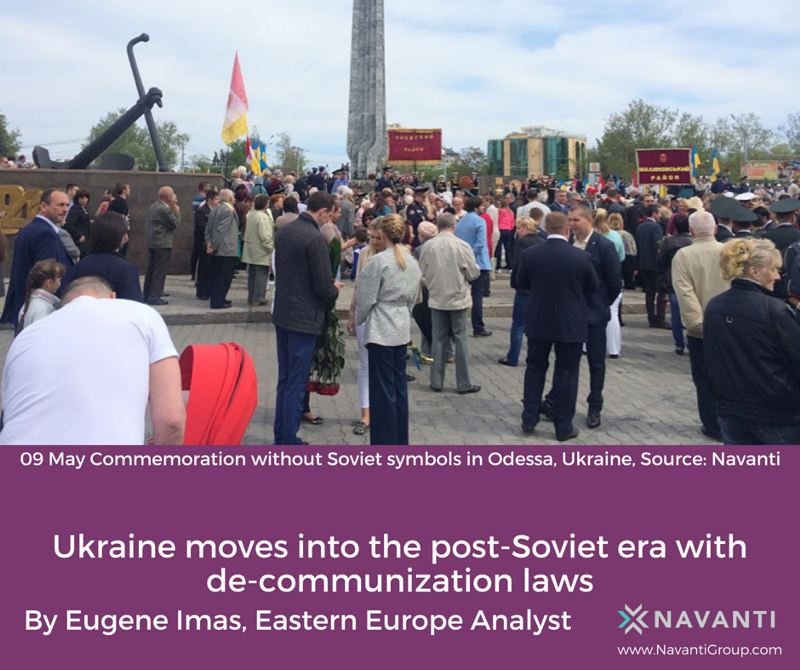
Ukraine’s de-communization laws came into force on 21 May 2015. The package of four laws seek to make major changes in Ukraine’s relationship with its Soviet past. The laws ban the display of Soviet symbols and change the status of the 09 May holiday marking the Soviet victory over Nazi Germany in World War 2. The laws’ will effectively remove all mentions of “the Great Patriotic War” (a Soviet term for World War 2) and replace it with “Second World War;” ban the Soviet Victory flag; and rename streets, squares, and even whole cities.
>
“I think most people (like 60%) in Kharkiv won’t care either way as long as the laws won’t affect them financially, but renaming all the streets is not going to be done for free.”
The laws are not without controversy. The Organization for Security and Cooperation in Europe expressed concern the laws might infringe upon free speech in Ukraine. However, proponents argue the laws, despite their potential shortcomings, will help Ukraine move forward by breaking with the burdens of its Soviet legacy and be able to better establish its own unique identity.
The legislative initiative seeks to remove Russian and Soviet traditions with the goal of helping Ukraine develop, express, and highlight its own history and relationship with the legacy of WWII. In addition, it will remove the names of highly controversial communist figures from streets, places, and even whole cities; names that were inherited from Ukraine’s Soviet past and replace them with more local ones.
People wishing to commemorate Soviet-era causes have continued to do so, but have altered their actions. For example, in places like Odessa, 09 May Victory Day remained solemnly powerful by honoring those who fought, died, and defeated Nazism but without having any references to the Soviet state or communism.
>
“It may be unpleasant to hear, but after a few more decades people will start to forget this holiday like they did with World War One.”

